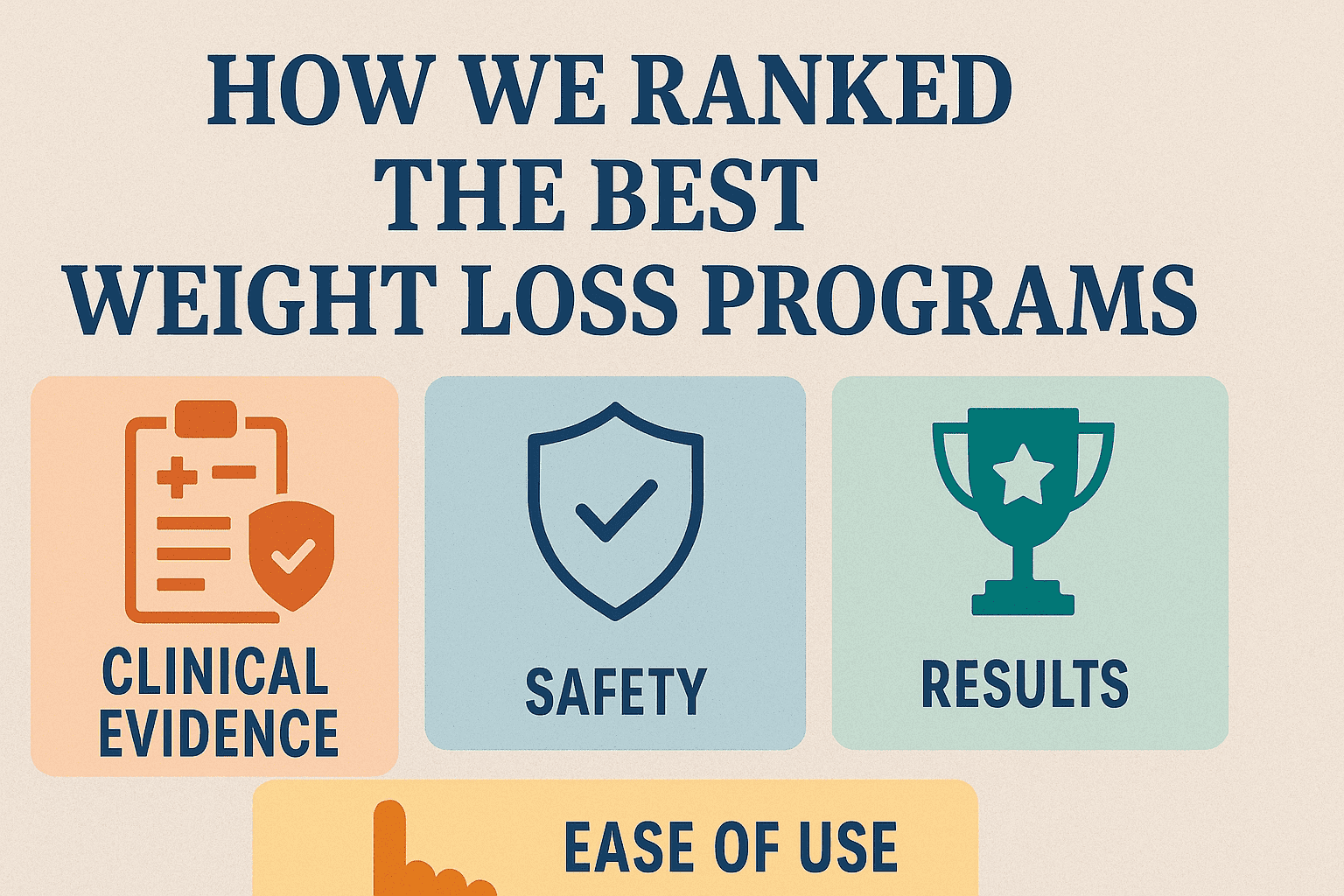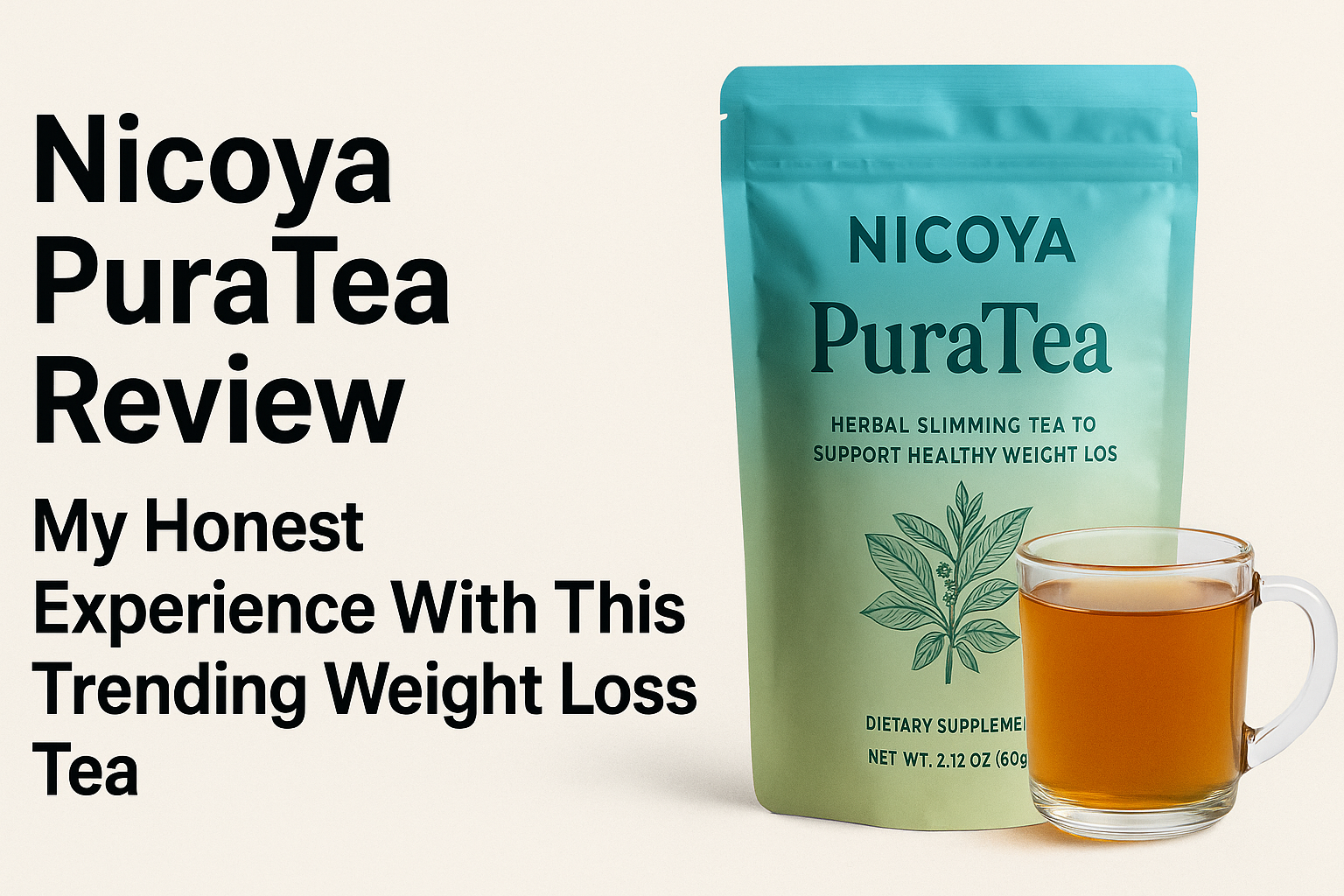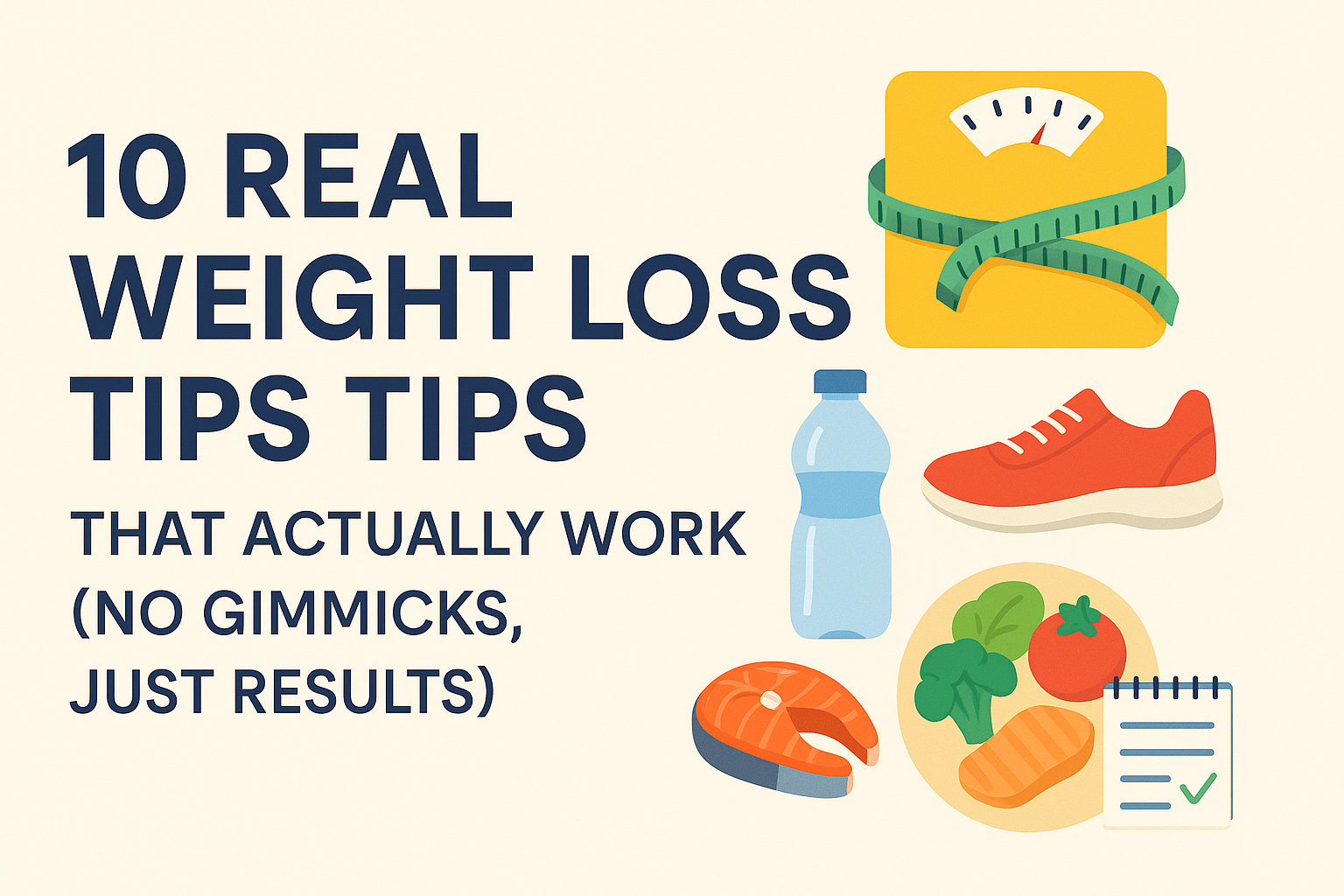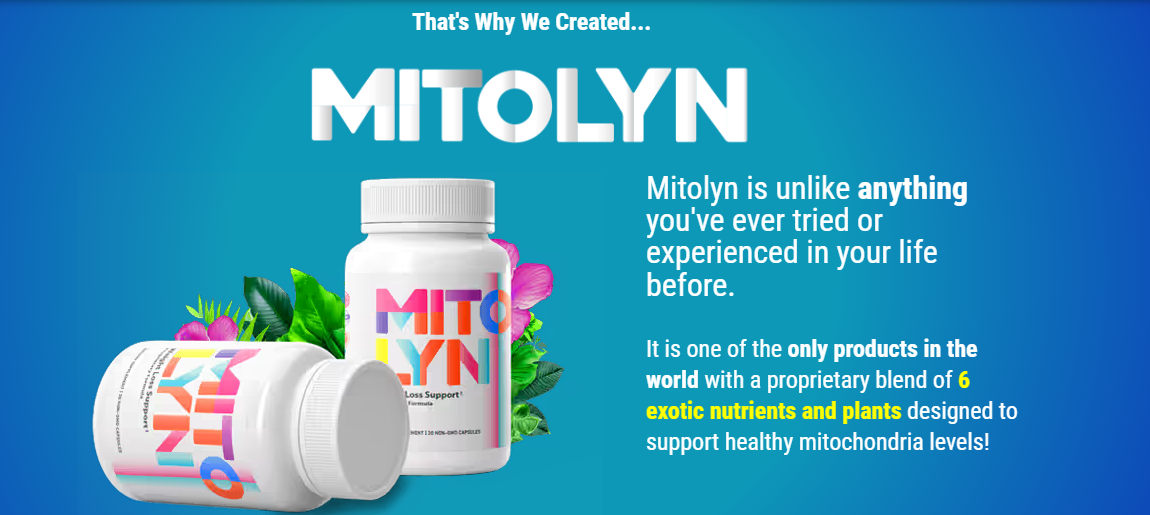2025
Top 10 Weight Loss Programs & Diet Supplements to Lose Weight Fast in 2025
The year 2025 has brought a surge of new and innovative weight loss options. From FDA-approved injections to tech-driven diet apps and supplements, there’s a program for every lifestyle. Experts now recommend evidence-backed approaches – whether medical treatments, delivered meals, or psychology-based plans – for safe, effective fat loss. In this guide, we review clinically reviewed programs, diet apps, supplements and lifestyle changes that help you lose weight fast (or gradually), using up-to-date research. For example, Saxenda (liraglutide) is an FDA-approved injection for chronic weight management, while studies show nearly 78% of Noom app users lose weight over months of use. Read on for our expert picks, including prescription options (Saxenda, Rybelsus), digital coaches (Noom, WW), meal plans (Optavia, Nutrisystem, Jenny Craig), and supplements (Alli, Alpilean, Exipure).
How We Ranked the Best Weight Loss Programs
We prioritized programs with strong clinical evidence, safety profiles, proven results, user ease of use, and expert endorsements. For example, we looked at FDA-approved injections and medications (like Saxenda) and apps (Noom) that have peer-reviewed data. We also considered commercial meal-delivery plans (Optavia, Nutrisystem) with published trials, plus popular supplements (Alli, Alpilean) and tech-driven plans (WW) that are doctor- or dietitian-recommended. In each category we weighted:
- Clinical evidence: randomized trials or long-term studies showing significant weight loss.
- Safety: FDA approval, known side effects, regulatory warnings.
- Results: average weight loss percentages or pounds lost (when data exists) and maintenance.
- Ease of use: convenience (e.g. pills vs. daily planning), coaching support, and program flexibility.
- Expert endorsements: recommendations from physicians, dietitians, or reputable health sites.
We ranked programs like weight loss injections (Saxenda, Rybelsus), diet apps (Noom, WW), meal delivery diets (Optavia, Jenny Craig, Nutrisystem) and even OTC supplements by these criteria. The result is a balanced list of 10 options that cover prescription medicines, digital programs, and consumable products – all aimed at helping you lose weight fast or gradually, safely and sustainably.
Top 10 Weight Loss Options
1. Saxenda Weight Loss Injections – Clinically Proven Prescription
Saxenda (liraglutide) is a daily injectable GLP-1 hormone that’s FDA-approved for weight loss in adults (BMI ≥30 or ≥27 with comorbidity). In clinical trials people taking Saxenda (with diet/exercise) lost on average 3–8% of their body weight, with some losing over 10%. It works by curbing appetite and slowing gastric emptying. Saxenda requires a prescription and is injected once daily (dose is slowly increased from 0.6 mg up to 3 mg).
- Key Features: Physician-prescribed GLP-1 injection; for adults (and approved for teens 12+) with obesity. Typically paired with diet/exercise. Avg weight loss ~5–10% in studies. Comes in a dial-a-dose pen (0.6–3 mg) for daily self-injection.
- Pros: Highly effective for many patients – e.g. Saxenda was the first GLP-1 approved specifically for weight control. Clinically proven results. May also improve blood sugar and heart health over time.
- Cons: Requires doctor supervision and insurance/pre-approval (expensive). Common side effects: nausea, diarrhea, constipation (often temporary). If you stop Saxenda, weight regain is likely.
Learn more: Prescription required; consult your doctor about Saxenda for weight management.
2. Noom Diet Program – Psychology-Based App
Noom is a popular psychology-based mobile app for weight loss. It uses daily lessons, food logging, and one-on-one coaching to change eating habits and behaviors. Users track meals and exercise while reading short cognitive-behavior lessons. A large study of Noom users found that ~78% lost weight during 9 months on the app (23% lost >10% of body weight).
- Key Features: Interactive app with food/exercise tracker and virtual personal coach. Focuses on habit-building and mindset (e.g. red-yellow-green food system). Includes group support via app communities. Subscription plans (~$70/month) for individuals or coach-led groups.
- Pros: Evidence of effectiveness: one Noom-funded study reported almost 80% of users lost weight, many significantly. Highly flexible (no food off-limits, just tracking). Useful for tech-savvy users who want constant feedback.
- Cons: Monthly cost can be high. Results depend on user engagement – you must log food and read content daily. Less structure if you prefer rigid meal plans. Requires smartphone access and comfort with app.
Learn more: Try Noom Weight Loss Program – Noom often offers trials for new members.
3. Optimal Weight 5&1 Plan (Optavia) – Structured Meal Plan for Rapid Weight Loss
Optavia’s flagship 5&1 Plan (formerly Medifast) is a packaged meal replacement program. Each day you eat 5 “Fueling” packets (shakes, bars, soups) plus 1 Lean & Green home-prepared meal. The total is only ~800–1,000 calories/day. Optavia promotes frequent feeding (6 small meals) and coaching support. The company claims users typically lose ~12 pounds in 12 weeks on this plan.
- Key Features: Meals: 5 daily Optavia Fuelings (portion-controlled packaged foods) + 1 lean/protein & veggie meal (Lean & Green). Coaching: Weekly calls/meetings with a coach, plus online tools. Nutrition: High protein, low-carb, low-calorie (very-low-calorie diet). Alternate option: 4&2&1 plan (4 Fuelings, 2 Lean&Green meals).
- Pros: Rapid early weight loss (studies of meal-replacement plans show significant loss vs. regular diets). Convenient (minimal cooking). Personalized support (accountability with coach).
- Cons: Very restrictive (only ~800–1000 kcal/day). Expensive: about $400–500/month for Fuelings. Heavy use of processed foods in packets. Hard to maintain long-term; most programs spike weight regain after done.
- Evidence: A 16-week study found Optavia (5&1) participants lost significantly more weight and body fat than a control group, indicating this intensive plan produces substantial short-term loss.
Learn more: Visit Optavia for plans and coaching details.
4. Alli Weight Loss Pills – FDA-Approved Fat Blocker
Alli is the only over-the-counter pill FDA-approved for weight loss. Its active ingredient is orlistat 60 mg, which blocks about 25% of dietary fat from being absorbed in the gut (lipase inhibitor). It’s intended for overweight adults (BMI≥25) to use along with a reduced-fat diet. Studies show Alli leads to modest extra weight loss: in one year-long trial, people taking Alli lost 5.7 pounds more than diet/exercise alone.
- Key Features: 60 mg orlistat capsule taken up to 3 times daily with meals. Acts by preventing some fat absorption. Results are modest (often a few extra lbs) on top of diet/exercise. In studies, ~40% of Alli users lost ≥5% of body weight within a year.
- Pros: Proven mechanism and FDA-regulated. Can accelerate weight loss slightly (for each 5 lbs lost by diet, Alli adds ~2–3 more lbs). Non-stimulant, minimal systemic effect (pill stays mostly in gut). Available OTC (no prescription needed).
- Cons: Digestive side effects are common: oily stools, gas, urgency (especially if you eat fat above the limit). Requires strict low-fat diet (<30% calories from fat) to minimize side effects. Weight loss gains are generally slow and modest. Also must take multivitamin (fat-soluble vitamin absorption reduced).
Buy Alli: Available online and in pharmacies (e.g. Alli on Amazon) – it may help jump-start weight loss.
5. Jenny Craig – Personalized Coaching & Meal Delivery (Weight Loss with Personal Coaching)
Jenny Craig is a long-standing commercial plan combining meal delivery and one-on-one coaching. You get pre-packaged meals and snacks (breakfast, lunch, dinner, desserts) plus weekly meetings with a consultant. The meal packages are calorie-controlled (typically ~1500–1800 kcal/day) and designed by dietitians. In one major review, Jenny Craig participants lost about 4.9% more body weight than people on self-led diets after one year, making it one of only two programs (with WW) backed by solid 12-month research.
- Key Features: Pre-portioned frozen or packaged meals and snacks delivered or available at center. Planned menus: high-protein breakfasts and snacks to curb hunger. Consultants: Personal coaching (in-person or phone) for motivation, menu guidance, and habit counseling. Accessibility: 1000+ centers across the U.S. (enter “Jenny Craig near me” on their site) plus online programs.
- Pros: Structured and convenient – no need to plan or cook meals. Regular consultant support can improve adherence. Clinically proven efficacy (average ~4–5% additional loss vs. DIY diets).
- Cons: Expensive (typically $150–$300+ per week for meals and coaching). Menus can be repetitive, and flexibility is limited. Coaching staff may not have formal nutrition licenses. Weight regain can occur once you stop the program unless new habits stick.
Learn more: Find a Jenny Craig program or center near you at jennycraig.com.
6. Nutrisystem for Women – Delivered Meal Plans for Weight Loss
Nutrisystem provides delivered meals and snacks tailored to individual needs. The Women’s Plan includes portion-controlled meals (breakfast, lunch, dinner and desserts or snacks) with a focus on higher protein and nutrient balance for women. You follow a 4–5-week menu cycle, also eating one “free” meal of your own. Nutrisystem claims clients can lose up to 7 lbs in the first week and 1–2 lbs each week after. Independent data support significant loss: one Nutrisystem trial found 17.8 lbs average loss in 12 weeks (vs much less on a standard diet).
- Key Features: Two brand-name meals per day delivered (one breakfast, one lunch or dinner) plus a protein shake and snack; one daily home-cooked meal. Mobile app and web trackers included. Dietary support: 30g+ protein per meal, controlled carbs, optional free vegetables. Plans for different women’s needs (e.g. post-menopause, vegetarian).
- Pros: Balanced nutrition designed by dietitians; convenient (meals ready-to-eat). Evidence of effectiveness: study participants had significant weight and waist reduction on Nutrisystem vs. control. Structured menus help curb overeating.
- Cons: Monthly cost ~$300+ depending on plan. Meals contain preservatives/packaged ingredients (though there are many meal choices). Less flexibility (you must pick from their menu). Some may find frozen meals unappealing long-term.
Buy/Rent Plan: Nutrisystem offers promotions via nutrisystem.com. Many women find it easier than DIY dieting
.
7. Rybelsus Weight Loss – Oral GLP-1 Prescription Pill
Rybelsus (oral semaglutide) is a daily pill in the same drug class as Ozempic/Wegovy injections. It’s FDA-approved for type 2 diabetes, and high doses are in trials for weight loss. The company plans to seek weight-loss approval soon. Early trial data show impressive results: in OASIS trials, 25 mg and 50 mg doses yielded about 14–15% body weight loss after ~15 months, comparable to Wegovy’s effect. Rybelsus offers the convenience of a pill instead of an injection.
- Key Features: Semaglutide oral tablets (3, 7, 14 mg for diabetes; 25, 50 mg being studied for weight). Future approval expected: likely in late 2025/2026 for weight management. Works by increasing satiety and lowering appetite. Prescription-only (to be obtained through endocrinologist or weight-loss clinic).
- Pros: No needles – easier dosing for those who dislike injections. Potent results (as studies show) similar to injectable GLP-1 drugs. Stable once-daily routine.
- Cons: Not yet officially available for obesity (only for diabetes as of 2025). Side effects like nausea/vomiting are common (as with all GLP-1s). Cost and insurance coverage unknown until approved for weight. Requires medical supervision.
Learn more: Ask your doctor about Rybelsus for weight loss or visit Rybelsus official site (prescription required
).
8. Alpilean Supplement – “Natural Metabolism Booster” Pill
Alpilean is a popular dietary supplement marketed as a “natural” metabolism booster or “hot ice” pill to accelerate fat burn. It typically contains herbal extracts (e.g. ginger, turmeric, moringa leaf) purported to raise body temperature. Important: There’s no FDA approval or scientific proof that Alpilean causes weight loss. As Mayo Clinic notes, “little proof exists that any dietary supplement can help with healthy, long-term weight loss.”. Like many over-the-counter fat burners, Alpilean’s claims are unverified and should be viewed skeptically.
- Key Features: Dietary capsules sold online (usually 60-count). Ingredients vary by brand, often including herbs, vitamins, and minerals. “All-natural” marketing. Targets general weight loss/metabolism (no prescription or diet change required beyond taking pills).
- Pros: Over-the-counter availability. Some users report increased energy (possibly from caffeine or other stimulants in formula).
- Cons: No proven efficacy. No clinical trials in humans showing Alpilean causes weight loss. Potential safety concerns: FDA often finds hidden stimulants or pharmaceuticals in “fat burner” supplements. Health experts warn such supplements can be harmful. Use caution – it’s wise to consult a doctor before trying any weight-loss supplement.
Buy Alpilean: Available on Amazon (e.g. Alpilean Capsules). Remember that supplements are not a substitute for diet/exercise.
9. Exipure Weight Loss Supplement – Brown Fat Booster
Exipure is another trending herbal “fat-burning” pill. It claims to increase brown adipose tissue (brown fat), which may boost metabolism. Ingredients often include green coffee bean, amur cork tree, and other exotic extracts. Again, no credible evidence supports Exipure’s weight-loss claims. In fact, many fat-burner supplements have been linked to severe side effects, including liver injury. Consumers should be very cautious.
- Key Features: Over-the-counter diet capsules (usually 60-count bottles). Marketed online through flashy ads (often via social media). Focuses on “brown fat” activation to burn belly fat naturally.
- Pros: No prescription needed. Some people like trying “natural” pills.
- Cons: Unproven – lacks FDA approval or human studies. Government health warnings often caution against fat-burners (they’re regulated as supplements, not drugs). Herbal supplements in this category have caused toxicities. Little scientific backing: Mayo Clinic emphasizes “the key to losing weight is eating well and moving more” – supplements alone rarely work.
Caution: Experts generally recommend avoiding unverified weight-loss pills. Prioritize safe, evidence-based methods (diet, exercise, proven meds).
10. WW (Weight Watchers) – Points-Based Nutrition Program
WW (formerly Weight Watchers) is a well-known program that uses a personalized points system to guide eating. Every food is assigned SmartPoints based on calories, sugar, protein, etc., and each member has a daily points budget. WW encourages lean proteins, fruits, veggies (often zero-point foods). You track points via an app or meetings. WW has decades of research behind it – a Johns Hopkins review found WW participants lost about 2.6% more weight after one year than dieters on their own.
- Key Features: Customizable nutrition plan with SmartPoints. No foods are completely off-limits. Trackable via smartphone app (bar-code scanner, recipes, community). Options for coaching: virtual workshops, one-on-one coaching, or self-directed.
- Pros: Flexible and sustainable: emphasizes healthy eating patterns rather than strict rules. Research-backed: WW and Jenny Craig are the only 2 programs with strong 12-month trial data. Has motivational support and large community.
- Cons: Requires diligent tracking (not everyone enjoys counting points). Monthly cost varies (~$20–$50). May feel complex at first until you learn the system. Results tend to be modest (few pounds per month) but steady.
Learn more: WW offers free trials. Visit WeightWatchers to see plans and find local meetings or online support.
Buyer’s Guide: Choosing the Right Weight Loss Plan
With so many weight loss programs available, how do you choose? First, consider your health and goals. If you have medical obesity (BMI>30) or diabetes, prescription therapies like Saxenda or Rybelsus can be game-changers. For example, a doctor may recommend Saxenda weight loss injections for faster results. On the other hand, tech-based plans like Noom weight loss apps or WW are great for self-motivated people who prefer non-medical routes.
Think about speed and lifestyle. Injections (GLP-1 drugs) often produce the largest short-term loss but require prescriptions. Apps and point systems (Noom, WW) teach habits and typically yield 1–2 lbs/week – not the fastest but more sustainable. Meal programs (Optavia, Nutrisystem) provide structure and convenience, often causing rapid early loss (up to 10–15 lbs in 3 months) but require prepurchasing foods. Pills/supplements (Alli, Alpilean, Exipure) generally offer the weakest results: Alli adds a few pounds to dieting, while unproven fat burners may have no effect or risks.
Other factors: Health conditions. People with high blood pressure, diabetes, or heart disease should be evaluated by a doctor before starting intense diets or GLP-1 meds. Budget. Coaching and prescription drugs can be costly, while apps and OTC pills are cheaper monthly. Timeframe. If you need to lose weight fast for an event, a medical program like Saxenda plus diet may be appropriate; for gradual lifestyle change, an app or WW can work. Always combine diet/exercise for best outcomes. In short: match the plan to your goals and constraints. For example, someone aiming to lose weight fast might try prescription Saxenda plus a diet plan, while someone seeking slow, steady progress might choose Noom or WW. Whichever you pick, ensure it’s safe, fits your budget, and has realistic long-term support.
Frequently Asked Questions
Q: What are the best weight loss injections in 2025?
A: The most effective injections are GLP-1 agonists. Currently, Saxenda (liraglutide) and Wegovy/Ozempic (semaglutide) are FDA-approved for weight loss and yield ~10–15% body weight reduction on average. A newcomer, Rybelsus (oral semaglutide), is expected to be approved soon (2026) and already shows similar results in trials. Mounjaro (tirzepatide) is another powerful option (newer dual-agonist). All require a doctor’s prescription. Saxenda and Rybelsus are great for someone with obesity; Wegovy/Ozempic are even more potent (though only injectables right now). The best one depends on your medical profile and doctor’s advice.
Q: Can I lose weight fast using diet apps like Noom?
A: Diet apps like Noom and WW can help you lose weight, but “fast” is relative. In studies, Noom users on average lost a healthy amount of weight: one large study found 78% lost some weight in 9 months. These programs emphasize sustainable changes, so expect about 1–2 pounds per week if you follow them closely. They can help you lose weight faster than dieting alone, because the coaching and tracking increase adherence. However, extreme “rapid” loss (e.g. 5+ lbs/week) is not typical with these apps – that pace usually requires prescription meds or very low-calorie diets.
Q: Is Alli safe for long-term weight loss?
A: Yes, Alli is FDA-approved for long-term use in eligible adults (BMI ≥25). When used correctly, Alli is generally safe: it works in the gut and isn’t absorbed into your bloodstream, so it doesn’t have stimulant side effects. The Mayo Clinic notes people on Alli (with diet/exercise) lose a few extra pounds over a year. However, most doctors consider its benefits modest. Long-term safety has been supported by years of use of prescription orlistat (Xenical). The main issues are digestive side effects if fat intake isn’t reduced. Overall, Alli can be a safe adjunct for weight loss if combined with a low-fat diet and doctor guidance.
Q: What’s the difference between Noom and WW?
A: Noom is a smartphone app that uses psychology and coaching; it educates you on food choices (red/yellow/green system) and pairs you with a virtual coach. WW (WeightWatchers) is a more traditional diet plan that assigns points to foods and offers optional group meetings or online workshops. Both focus on behavior change and balanced nutrition. In terms of results, studies show both can work: one found WW members lost about 2.6% more of their starting weight than dieters on their own, and surveys of Noom users show high success rates. Choose Noom if you prefer app-based lessons and one-on-one coaching; choose WW if you like flexibility with face-to-face or online group support and a point system for daily tracking.
Q: Where can I find Jenny Craig near me?
A: Jenny Craig has over a thousand weight loss centers across the U.S. (and Canada). To find one, go to jennycraig.com and use their “Find a Center” feature by entering your zip code. They also offer their full program online or by phone if you don’t have a local branch. Jenny Craig’s coaches and meals are available nationwide, so you can start the program wherever you live. (Their website also has info on pricing and starter offers.)
Also Check Out 10 Best Wireless Earbuds of 2025: Unbeatable Sound for iPhone, Android & Fitness
Conclusion
In summary, the top 10 weight loss programs and supplements of 2025 span from prescription medications to diet apps and meal plans. Saxenda and other GLP-1 drugs offer powerful prescription options for those with medical needs. Apps like Noom and WW teach healthy habits for the long haul. Meal deliveries (Optavia, Nutrisystem, Jenny Craig) provide structure and often rapid early loss. OTC options like Alli can give a modest boost, while other supplements (Alpilean, Exipure) carry skepticism or risk. Each approach has pros and cons, so choose based on your goals and lifestyle: Saxenda for prescription strength, Noom for coached digital support, Alli as an OTC pill, etc.
Whether your priority is to lose weight fast or to slim down more gradually, there’s a safe, science-backed plan here for you. From weight loss injections to guided programs and supplements, these options cover all bases. As always, combine any plan with balanced diet and exercise, and consult a healthcare professional if you have health conditions. Whether you want to lose weight fast or take a gradual approach, these weight loss programs and supplements offer safe, science-backed support.
Sources: Authoritative reviews and studies from Mayo Clinic, Healthline, Johns Hopkins, GoodRx, and others as cited above (e.g.).










